Welcome to the ultimate guide on creating a stunning magnolia centerpiece for your dining table! As I sit down to write this, I can’t help but remember the first time I saw a magnolia arrangement gracing a table at a friend’s dinner party. The elegance and beauty of those creamy blossoms instantly caught my attention. They transformed the dining area into a scenic wonderland, making every guest feel special. In this article, I’ll share everything you need to know about incorporating magnolia into your dining decor.
What Makes Magnolia Centerpieces Special?
Magnolias are not just ordinary flowers. Their large, fragrant blooms symbolize purity and dignity, making them a perfect choice for any dining setting, from casual family dinners to elegant gatherings.
The Rich History of Magnolia
The magnolia has a long history, dating back over 100 million years. Its charm has captivated people across various cultures, making it a popular choice for gardens and floral arrangements alike.
Varieties of Magnolia Flowers
Here are some popular varieties you might consider for your centerpiece:
- Southern Magnolia: Known for its large, white blossoms, this variety is iconic in Southern U.S. culture.
- Star Magnolia: A hardy option with star-shaped flowers, perfect for early spring arrangements.
- Cucumber Tree: Offers large, tulip-like flowers and a pleasant fragrance.
Choosing the Right Magnolia for Your Centerpiece
When selecting magnolia blooms for your centerpiece, consider the following factors:
- Color: White, pink, and even purple shades are available.
- Size: Larger blooms can be stunning on a big table while smaller ones work well for more intimate settings.
- Fragrance: Some varieties are more fragrant than others; choose according to your preference and the table setting.
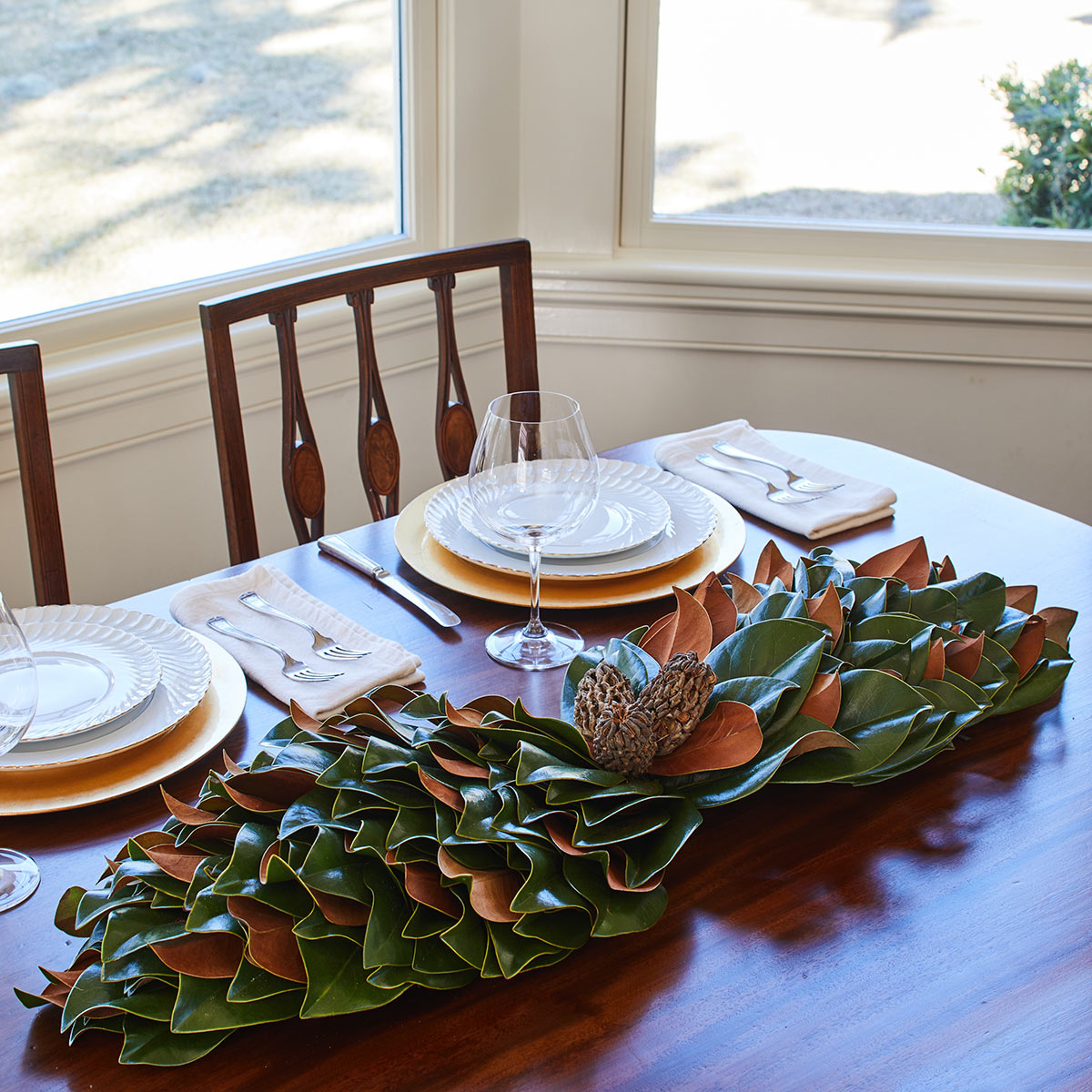
How to Create a Magnolia Centerpiece: Step-by-Step Guide
Materials You’ll Need
- Fresh or artificial magnolia blooms
- A vase (glass, ceramic, or metallic)
- Floral foam (if using fresh flowers)
- Greenery (such as eucalyptus or ferns)
- Floral wire and tape (optional)
- Decorative elements (like candles or pebbles)
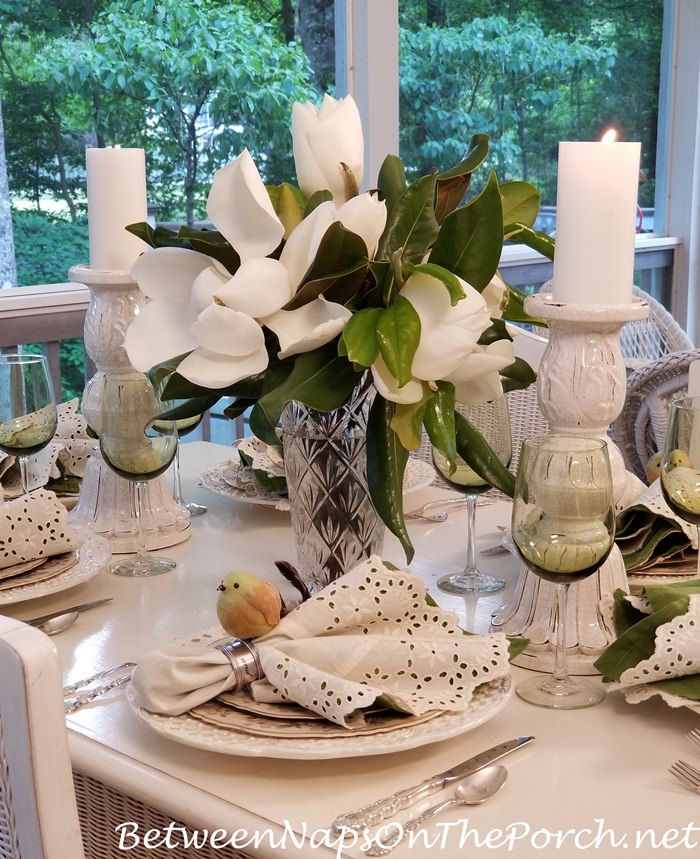
Step 1: Selecting Your Base
Choose a vase that complements the size and style of your magnolia blooms. A clear glass vase allows the beauty of the flowers to shine through, while a ceramic option can add a rustic charm.
Step 2: Preparing Your Flowers
If using fresh magnolias, trim the stems at an angle and remove any leaves that will sit below the water line. For artificial flowers, you can start arranging them straight away.
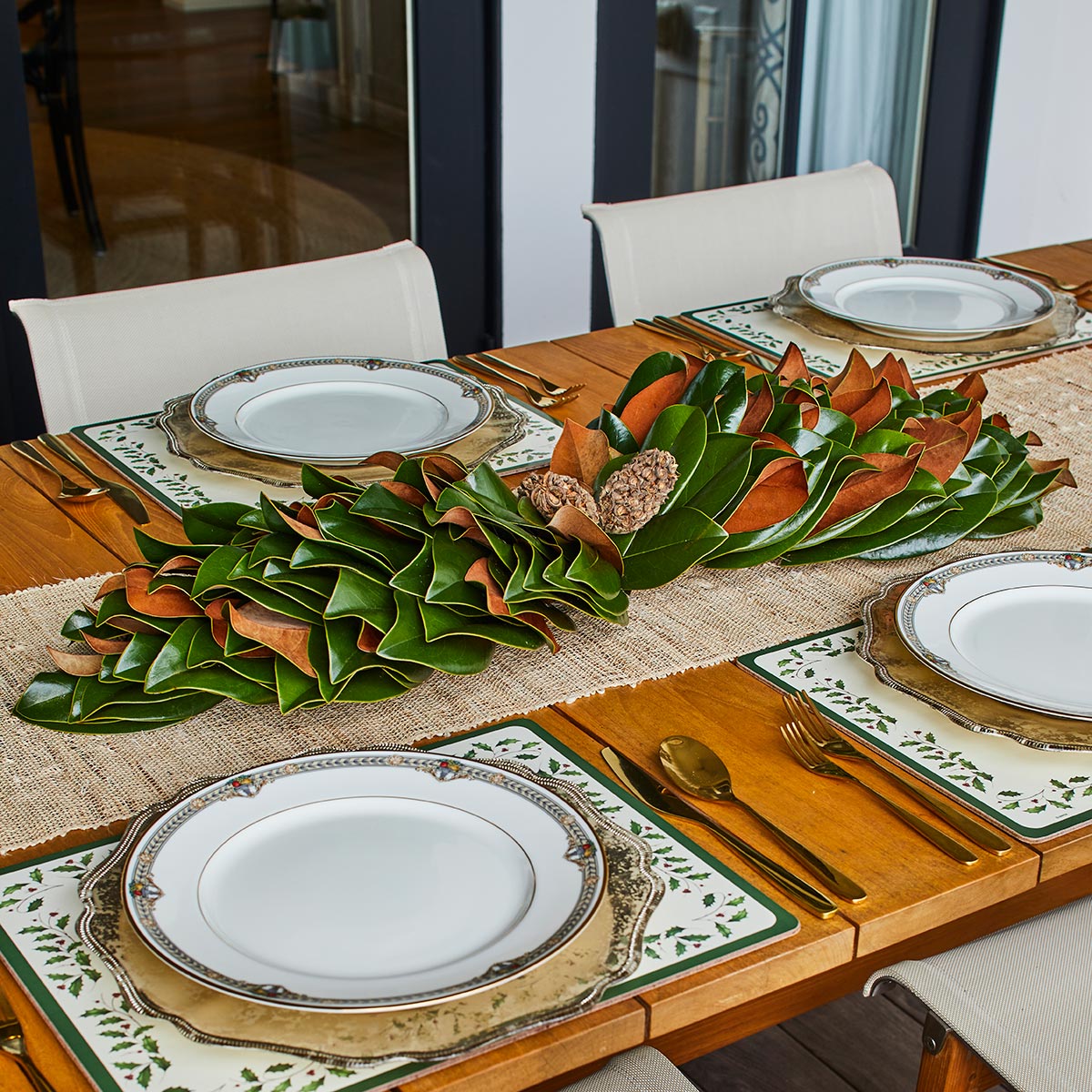
Step 3: Arranging the Magnolias
Start by placing the larger blooms in the center of the vase, followed by smaller flowers around them. Ensure a balanced look by alternating heights and layering greenery to fill any gaps.
Step 4: Adding Greenery
Greenery adds depth and contrast to your arrangement. Eucalyptus, ferns, or other complementary leaves work well. Fill the spaces between flowers and allow some strands to trail down for a natural look.

Step 5: Finishing Touches
Add decorative elements like candles or pebbles to enhance the aesthetic. A few candles can provide a warm glow, especially during dinner parties.
Best Places to Display Your Magnolia Centerpiece
Your dining table is the most obvious choice, but consider these additional locations:
- Living room coffee table
- Entryway console table
- Kitchen island or counter
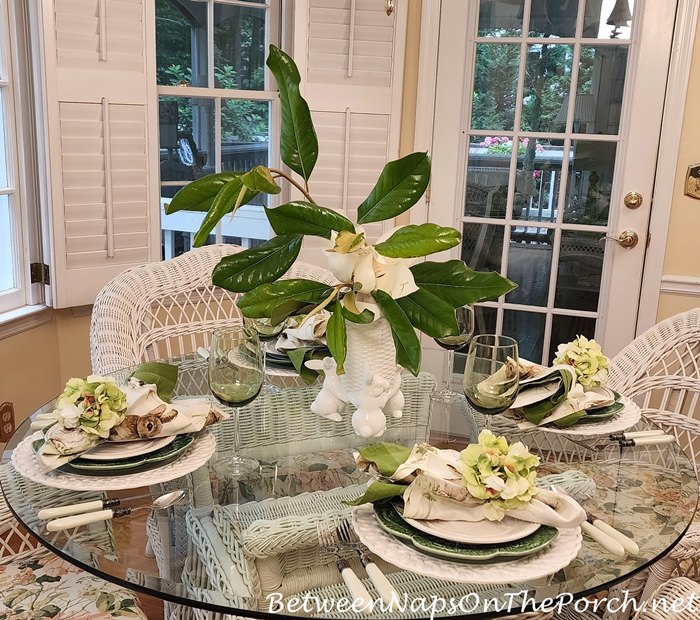
Comparing Fresh vs. Artificial Magnolia Centerpieces
| Feature | Fresh Magnolias | Artificial Magnolias |
|---|---|---|
| Realism | True-to-life fragrance and appearance | May lack fragrance but can look very realistic |
| Longevity | Lasts a week with proper care | Indefinite lifespan; requires no maintenance |
| Cost | Generally more expensive | Often a one-time investment |
| Maintenance | Needs regular watering and trimming | Requires occasional dusting |
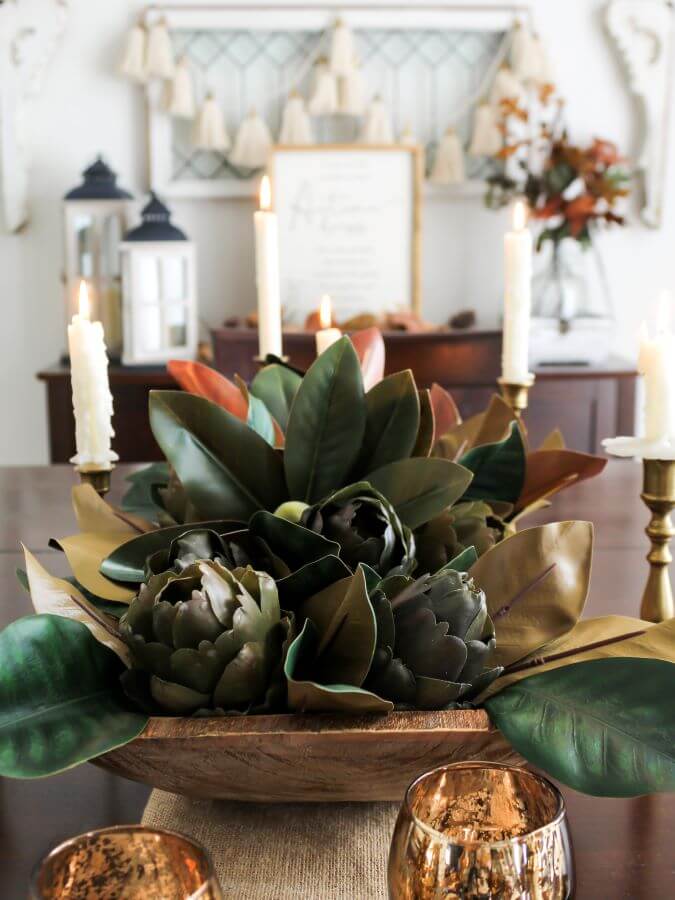
Pros and Cons of Using Magnolia Centerpieces
Pros
- Elegant and timeless aesthetic
- Can evoke feelings of nostalgia and charm
- Versatile for various occasions and settings
- Symbolizes purity, nobility, and dignity
Cons
- Fresh flowers can wilt quickly if not cared for
- May require additional floral arrangement skills
- Some varieties can be hard to source
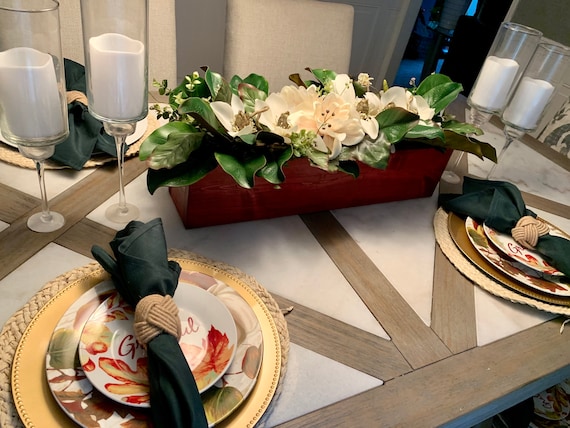
Styling Tips for Your Dining Room with Magnolia Centerpieces
To elevate your dining room’s aesthetic, consider these styling tips:
Choose a Color Palette
Complement your magnolia centerpiece with a cohesive color palette throughout your dining room. Soft pastels or earthy tones pair beautifully with the natural look of magnolias.
Incorporate Textures
Add different textures to your table setting, such as linen tablecloths, rustic wood accents, or polished metallic elements, to create a dynamic visual presentation.
Balance with Lighting
Soft lighting can accentuate the beauty of your centerpiece. Use dimmable fixtures or candles to create a warm atmosphere, especially during evening gatherings.
FAQs About Magnolia Centerpieces
1. How long do fresh magnolia flowers last in a centerpiece?
Fresh magnolia flowers can last up to a week with proper care, including trimming the stems and replacing the water regularly.
2. Can I use magnolia branches in my centerpiece?
Absolutely! Magnolia branches can add height and texture, creating a more dynamic arrangement.
3. What other flowers pair well with magnolias?
Roses, peonies, and hydrangeas can complement magnolias beautifully, adding color and variety to your centerpiece.
4. Are artificial magnolias a good alternative?
Yes, artificial magnolias are a great alternative if you want a long-lasting arrangement with minimal maintenance.
5. How do I care for fresh magnolia flowers?
Keep them in fresh water, remove wilted leaves, and trim the stems to ensure they absorb water effectively.
Conclusion
Creating a magnolia centerpiece for your dining table is not just about the beauty it brings; it’s about the memories you create around that table. Whether you choose fresh or artificial blooms, the elegance of magnolias can elevate any dining experience. So, gather your materials and let your creativity shine—after all, your home deserves a touch of timeless elegance!